[fusion_builder_container hundred_percent=”no” equal_height_columns=”no” menu_anchor=”” hide_on_mobile=”small-visibility,medium-visibility,large-visibility” class=”” id=”” background_color=”” background_image=”” background_position=”center center” background_repeat=”no-repeat” fade=”no” background_parallax=”none” parallax_speed=”0.3″ video_mp4=”” video_webm=”” video_ogv=”” video_url=”” video_aspect_ratio=”16:9″ video_loop=”yes” video_mute=”yes” overlay_color=”” video_preview_image=”” border_size=”” border_color=”” border_style=”solid” padding_top=”” padding_bottom=”” padding_left=”” padding_right=””][fusion_builder_row][fusion_builder_column type=”1_1″ layout=”1_1″ background_position=”left top” background_color=”” border_size=”” border_color=”” border_style=”solid” border_position=”all” spacing=”yes” background_image=”” background_repeat=”no-repeat” padding_top=”” padding_right=”” padding_bottom=”” padding_left=”” margin_top=”0px” margin_bottom=”0px” class=”” id=”” animation_type=”” animation_speed=”0.3″ animation_direction=”left” hide_on_mobile=”small-visibility,medium-visibility,large-visibility” center_content=”no” last=”no” min_height=”” hover_type=”none” link=””][fusion_text columns=”” column_min_width=”” column_spacing=”” rule_style=”default” rule_size=”” rule_color=”” hide_pop_tinymce=”” hide_on_mobile=”small-visibility,medium-visibility,large-visibility” class=”” id=””]
Institute Events
[/fusion_text][fusion_tabs design=”classic” layout=”horizontal” justified=”yes” backgroundcolor=”” inactivecolor=”” bordercolor=”” icon=”” icon_position=”” icon_size=”” hide_on_mobile=”small-visibility,medium-visibility,large-visibility” class=”” id=””][fusion_tab title=”Upcoming Events” icon=”” hide_pop_tinymce=””]
Upcoming Events
The UCLA Institute of Transportation Studies holds a number of events throughout the year, including lecture series, annual forum and symposium. This section will also feature events from our partners, including the Pacific Southwest Region 9 University Transportation Center, the UCLA Lewis Center for Regional Policy Studies, the UCLA Luskin Center for Innovation and the UCLA Smart Grid Energy Research Center, among others.
There are currently no events planned. Check back soon for updates!
[/fusion_tab][fusion_tab title=”Recent Events” icon=”” hide_pop_tinymce=””]
Recent Events
MTI Research Snaps Presents COVID-19 and State-Generated Transportation Funds in California
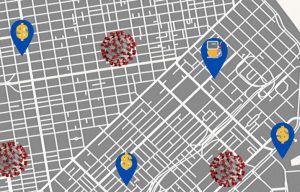
Mineta Transportation Institute Event | May 14, 2020 | Virtual Event
The COVID-19 public health emergency has drastically changed every aspect of California life, including reducing personal travel by as much as half in many regions. As a result, transportation revenues are plummeting because user fees produce a large share of resources needed to operate California’s transportation system. This research used simple spreadsheet models to estimate the impact of different scenarios for economic recovery from the COVID-19 pandemic on state-generated transportation revenues. The model covers the SB1 package of gasoline taxes, diesel taxes, and two annual fees levied on vehicles.
The full recording can be found at this link here.
[fusion_separator style_type=”single solid” hide_on_mobile=”small-visibility,medium-visibility,large-visibility” class=”” id=”” sep_color=”” top_margin=”20″ bottom_margin=”25″ border_size=”” icon=”” icon_circle=”” icon_circle_color=”” width=”” alignment=”center”][/fusion_separator]
UCLA Luskin Virtual Summit Series — Session 10: Transit Past, Present and Future
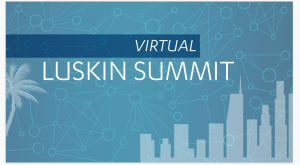
UCLA Luskin School of Public Affairs Event | May 15, 2020 | Virtual Event
The role and usage of public transit in America has changed much over the past century, past decade, and even past few months in the wake of the coronavirus pandemic. In this webinar, faculty affiliated with the UCLA Institute of Transportation Studies discussed the evolution of transit and its implications for the weeks, months, and years ahead.
Full recording can be found at this link here.
[fusion_separator style_type=”single solid” hide_on_mobile=”small-visibility,medium-visibility,large-visibility” class=”” id=”” sep_color=”” top_margin=”20″ bottom_margin=”25″ border_size=”” icon=”” icon_circle=”” icon_circle_color=”” width=”” alignment=”center”][/fusion_separator]
InterActions LA: Uplifting Women’s Safety in Transportation
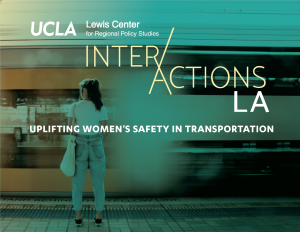
UCLA Lewis Center Event | April 3, 2020 | Virtual Event
InterActions LA discussed the opportunities to improve safety for women, girls, and other vulnerable populations as they travel throughout the Los Angeles region. Too often, people in these groups feel unsafe in public and this inhibits their freedom, independence and quality of life. This event presented new research by UCLA professor Anastasia Loukaitou-Sideris on public transit safety from LA and around the world, along with real-world examples and thoughts for advancing safety for everyone. Participants had an opportunity to exchange their best ideas with each other and engage deeply on solutions to advance mobility justice for women, girls, and everyone.
The full recording and materials can be found at this link here.
[fusion_separator style_type=”single solid” hide_on_mobile=”small-visibility,medium-visibility,large-visibility” class=”” id=”” sep_color=”” top_margin=”25″ bottom_margin=”25″ border_size=”” icon=”” icon_circle=”” icon_circle_color=”” width=”” alignment=”center”][/fusion_separator]
UCLA at TRB 2020
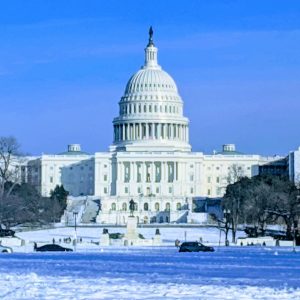 UCLA ITS Participation | Jan. 12-16, 2020 | Washington, D.C.
UCLA ITS Participation | Jan. 12-16, 2020 | Washington, D.C.
UCLA ITS had 18 presentation from faculty, affiliated researchers and students at the TRB 99th Annual Meeting. For a full list of presentations, click here.
UCLA faculty and students were awarded the Pyke Johnson Award for a paper on the mobility needs of aging adults. Read more here.
Students received recognition for their poster presentations and recent capstone projects.
[fusion_separator style_type=”single solid” hide_on_mobile=”small-visibility,medium-visibility,large-visibility” class=”” id=”” sep_color=”” top_margin=”20″ bottom_margin=”25″ border_size=”” icon=”” icon_circle=”” icon_circle_color=”” width=”” alignment=”center”][/fusion_separator]
ITS Fall 2019 Lecture Series
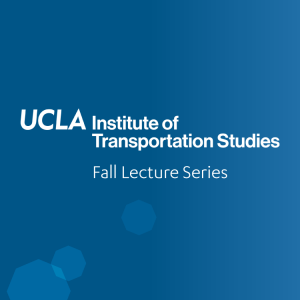 UCLA ITS Event | Multiple Dates | UCLA Campus
UCLA ITS Event | Multiple Dates | UCLA Campus
“California High Speed Rail: Origin and Possible Destinations” with Martin Wachs (UCLA)
“Where to Put the Port? The Free Harbor Fight and the Development of Los Angeles” with Eric Morris (Clemson University)
“Drive to Precarity: A Political History of Work, Regulation, & Labor Advocacy in San Francisco’s Taxi and Uber Economies” with Veena Dubal (UC Hastings College of Law)
“Scootershare, Carshare, Bikeshare, and the Role of Public Policy” with Francie Stefan (City of Santa Monica”
“How to Make Money Moving People Around Cities (Hint: Best of Luck!)” with Joshua Schank (LA Metro)
“Anticipating a World of Automated Transport: Opportunities for Vehicle- and Ride-Sharing Systems” with Kara Kockelman (University of Texas)
[fusion_separator style_type=”single solid” hide_on_mobile=”small-visibility,medium-visibility,large-visibility” class=”” id=”” sep_color=”” top_margin=”25″ bottom_margin=”25″ border_size=”” icon=”” icon_circle=”” icon_circle_color=”” width=”” alignment=”center”][/fusion_separator]
The 29th Annual UCLA Arrowhead Symposium
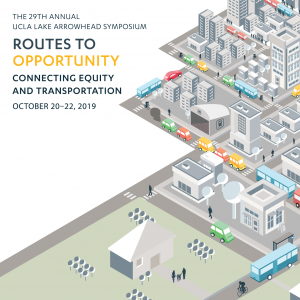 UCLA ITS & Lewis Center Event | October 20 – 22, 2019 | Lake Arrowhead, Calif.
UCLA ITS & Lewis Center Event | October 20 – 22, 2019 | Lake Arrowhead, Calif.
The annual UCLA Lake Arrowhead Symposium hosts leaders and stakeholders from the public, private, non-profit, and academic sectors for thoughtful discussion around the connections and conflicts between transportation, land use, and the environment. For the past 28 years, attendees have tackled the local policies, influences, and consequences related to climate change.
This year’s theme is Routes to Opportunity: Connecting Equity and Transportation.
[fusion_button link=”https://www.uclaarrowheadsymposium.org/” text_transform=”” title=”” target=”_self” link_attributes=”” alignment=”” modal=”” hide_on_mobile=”small-visibility,medium-visibility,large-visibility” class=”” id=”” color=”default” button_gradient_top_color=”” button_gradient_bottom_color=”” button_gradient_top_color_hover=”” button_gradient_bottom_color_hover=”” accent_color=”” accent_hover_color=”” type=”” bevel_color=”” border_width=”” size=”” stretch=”default” shape=”” icon=”fa-info-circle fas” icon_position=”left” icon_divider=”no” animation_type=”” animation_direction=”left” animation_speed=”0.3″ animation_offset=””]More Information[/fusion_button] [fusion_separator style_type=”single solid” hide_on_mobile=”small-visibility,medium-visibility,large-visibility” class=”” id=”” sep_color=”” top_margin=”25″ bottom_margin=”25″ border_size=”” icon=”” icon_circle=”” icon_circle_color=”” width=”” alignment=”center”][/fusion_separator]
TransportationCampLA @ UCLA
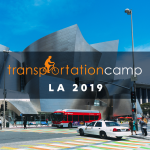 UCLA ITS Event | July 13, 2019 | UCLA Campus
UCLA ITS Event | July 13, 2019 | UCLA Campus
TransportationCamp LA is an open venue for sharing and learning about the region’s transportation issues and successes. It is not a formal conference – rather, as an unconference, it is driven entirely by attendees’ interests and experiences. Sessions are determined at the beginning of the day and are drawn from proposals and ideas that attendees submit. A session can be any format: a presentation, an open discussion, a demonstration, a panel, or even a group exercise or game.
This event is open to advocates, professionals, community members, and everyone passionate about mobility in Los Angeles and Southern California.
Spring 2019 Lecture Series on Resilient, New Mobility
Unintended Consequences of Autonomous Vehicles | Adam Millard-Ball, UC Santa Cruz
Towards Resilient Infrastructure for a Changing Climate and Future | Mikhail Chester, Arizona State University
Model Checking in a Time of Simulation | Timothy Brathwaite, Lyft
Bringing Congestion Pricing to LA | Joshua Schank, Metro
Building Traveler-Centric Methods to Design Safe and Functional Urban and Intercity Transportation Infrastructure | Megan Ryerson, University of Pennsylvania
Representing the Underrepresented: Making the Case for Digital and Inclusive Data for Travel Activity Studies | Tierra Bills, University of Michigan
Financing California’s Transportation Infrastructure: A Capital Markets Perspective | Alex Zaman, Citi
2018 Fall Innovative Mobility Speaker Series
- Realistic Prospects for Vehicle Automation in the Years Ahead and their Implications for Mobility with Steven Shladover
- Extraordinary Innovation at Metro with Joshua Schank
- New Mobility: Lys Mendez and Marla Westervelt of Bird
- Robert Poole: Rethinking America’s Highway Institutions
- Three Revolutions: Steering Automated, Shared and Electric Vehicles to a Better Future – Dan Sperling, UC Davis
UCLA ITS 25th Anniversary Celebration
Our celebration of the past 25 years of scholarship, education, and public engagement reconnected classmates, friends, and professors. In honor of the anniversary, consider giving $25 to support ongoing ITS research and student scholarships.
2018 Spring Speaker Series
The series brought national experts to the UCLA Luskin School to discuss new research and best practices around public transit, transportation finance, innovative mobility, and much more. It took place during Professor Brian Taylor’s Transportation Policy and Planning graduate course, but all events were open to the public. Catch up with the installments below and watch recordings of most of the speakers on our YouTube channel.
- Creating Vibrant and Healthy Cities for All with Gil Penalosa
- Intercity Passenger Travel and the Prospects for High-Speed Rail with Martin Wachs
- Big Data and Urban Government: Effects of the Waze App on Traffic Policies in the Paris Region with Antoine Courmont
- Investing in Bus and Rail Transit: Ridership and Development Impacts with Genevieve Giuliano
- Re-Imagining Transit Networks: The Story of Houston, Texas with Kurt Luhrsen
- Integrating Traditional and Innovative Transit: Prospects and Challenges with Joshua Schank
- Carshare, Bikeshare: Trends, Prospects, and the Role of Public Policy with Francie Stefan
- Equity and Discrimination in Shared Mobility with Anne Brown
- Automated Vehicles: A Shared or Ownership Future? with Tim Papandreou
Transportation is a Women’s Issue – Part II: A gendered planning mismatch
Discussions and plans for the future of transportation and new innovative mobility services often fail to account for women’s travel patterns. What potential do new mobility options, bikesharing, ridesourcing, and microtransit hold for closing this gap? Or will they rather reinforce these divergent travel patterns? Naomi Iwasaki of Investing in Place hosted a conversation about women’s travel patterns, current and future transportation planning and policy with UCLA Luskin professor Dr. Evelyn Blumenberg, Seleta Reynolds of the Los Angeles Department of Transportation, and Stephanie Wiggins of LA Metro.
Transportation is a Women’s Issue – Part I: Public transportation and #MeToo
The #MeToo movement against sexual harassment and assault must influence public transportation procedures, designs, and policies. ITS associate director Madeline Brozen kicked off a new 2017-18 discussion series by speaking with Dr. Anastasia Loukaitou-Sideris, a professor of urban planning at UCLA Luskin and ITS faculty fellow, about women’s transportation needs, how transit agencies are and are not meeting these needs, and the role of sexual harassment in public space and public transit.
Travel Behavior and the Three Revolutions of Shared, Electric, and Autonomous Vehicles
A select group of transportation policymakers, stakeholders, and experts convened for a session at the 2017 LA CoMotion Expo & Festival on the 3 Revolutions Future Mobility Program from the UC Institute of Transportation Studies. The program, led by researchers at ITS-Davis, hopes to guide public decision-making and private investments around new vehicle technology, and the discussion centered on the implications of shared, electric, and autonomous vehicles on mobility, pricing, greenhouse gas emissions, public transit, and much more.
[/fusion_tab][fusion_tab title=”Wachs Lecture” icon=”” hide_pop_tinymce=””] [fusion_menu_anchor name=”wachlectures” class=””][/fusion_menu_anchor]
Martin Wachs Distinguished Lecture Series
Each year the annual Wachs Lecture draws innovative thinkers to the University of California to address today’s most pressing issues in transportation. Created by students to honor Professor Martin Wachs upon his retirement, the lecture rotates between UCLA and UC Berkeley, the campuses at which Marty taught.
Integrating Transportation, Land Use, and Environmental Planning for Social Justice and Carbon Reduction: Finding a Way that Works
 Year: 2019
Year: 2019
Location: UC Berkeley
Speaker: Elizaben Deakin, UC Berkeley
Elizabeth Deakin’s research focuses on transportation and land use policy and the environmental impacts of transportation. She has published over 200 articles, book chapters, and reports on topics ranging from environmental justice to transportation pricing to development exactions and impact fees. She currently is carrying out a series of studies on urban development and transportation in China, Latin America, and India as well as in California.
Deakin is professor emerita of city and regional planning at UC Berkeley, where she also is an affiliated faculty member of the Energy and Resources Group and the Master of Urban Design group. She formerly served as Director of the University of California Transportation Research Center (1998-2008) and co-director of the UC Berkeley Global Metropolitan Studies Initiative (2005-2008).
Designing the 30-Minute City
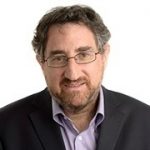 Year: 2019
Year: 2019
Location: UCLA
Speaker: David Levinson, University of Sydney
The 12th annual Martin Wachs Distinguished Lecture will be held May 16 at UCLA Luskin School of Pubic Affairs. David Levinson is professor in the School of Civil Engineering at the University of Sydney and adjunct faculty in the Department of Civil, Environmental, and Geo-Engineering at the University of Minnesota. The 30-minute isochrone has long defined people’s use of cities — from ancient times through the trams era to modern times. Networks and land use co-evolve with technology subject to the constraints of available time. There are opportunities (low-hanging fruit) to use design to reduce the costs of travel and thus increase access for relatively little monetary outlay. This talk discusses both the measurement of accessibility, why it matters, and how it might affect traveler behavior, institutional behavior, and public policy. Looking at data from rail and tram development in Sydney from the 1800s and Australia today, implications about the effects of accessibility are described.
Levinson received the 1995 Tiebout Prize in Regional Science for the paper “Location, Relocation, and the Journey to Work.” From 1989 to 1994, he worked as a transportation planner, developing integrated transportation and land-use models for Montgomery County, Maryland. He then applied those models for multimodal network planning and growth management. Levinson has authored or edited several books, including Spontaneous Access, The End of Traffic and the Future of Transport, The Transportation Experience, and Planning for Place and Plexus, as well as numerous peer reviewed articles. He is the editor of the Journal of Transport and Land Use. He has a PhD in transportation engineering from Berkeley and his dissertation “On Whom the Toll Falls,” argued that local decision-making about managing and financing roads will most likely lead to direct road pricing, which will allow the efficient allocation of scarce road resources (and thus reduce congestion).
Smart Cities: The Future of Urban Infrastructure
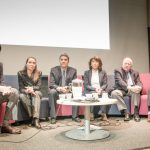 Year: 2018
Year: 2018
Location: Berkeley
Speakers: Jeff Morales, Ryan Russo, Tom Maguire, Maria Mehranian, Susan Shaheen
The 11th annual Martin Wachs Distinguished Lecture, hosted at Berkeley, featured a panel of transportation and planning experts: Jeff Morales, Ryan Russo, Tom Maguire, Maria Mehranian, Susan Shaheen. Russo, an internationally recognized expert on transportation and urban planning solutions, with extensive experience in both the public and private sectors, spoke about the challenges in maintaining and growing economic well-being in an era of new transportation modes. The talk addressed the fact that with increased capacity and greater mobility undergirding economic viability and quality of life comes congestion, increased energy consumption, air pollution, environmental damage, urban sprawl, compromised safety, damage to natural habitats, climate change and health impacts. As the panelists emphasized, this current dilemma and hypermobility demands a transport agenda for this global era to be set.
When Forecasting Fails: Making Infrastructure Decisions in an Uncertain World
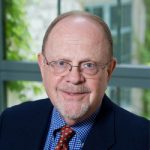 Year: 2017
Year: 2017
Location: UCLA
Speaker: Joseph Schofer, Northwestern University
UCLA hosted the 10th annual ‘Martin Wachs Distingured Lecture”, where invitee lecturer, Joe Schofer, Faculty at Northwestern University, provided a wide-ranging view about forecasting – a prominent feature of transportation planning. He explained to the audience that learning to accept the inherent limitations of the forecasting process is a necessary first step in helping planners improve their predictions of cost, utilization, performance and impact. Schofer’s lecture focused less on the shortcomings of forecasting than on “improving decisions by systematic learning from experience”. He urged the crowd to not expect that the gap between predicted outcomes and reality is going to get really small. As he commented, “the world is changing at a faster and faster pace. And those big sources of uncertainty — sources of risk — often are outside the transportation system.”
A Transportation Agenda for the Global Era
 Year: 2016
Year: 2016
Location: Berkeley
Speaker: Catherine Ross, Georgia Tech University
The 9th annual Martin Wachs Distinguished Lecture, hosted at Berkeley, featured Catherine Ross, Professor of City and Regional Planning at Georgia Tech and an internationally recognized expert on transportation and urban planning solutions, who spoke about the challenges in maintaining and growing economic well-being in an era of new transportation modes. Ross discussed with increased capacity and greater mobility undergirding economic viability and quality of life comes congestion, increased energy consumption, air pollution, environmental damage, urban sprawl, compromised safety, damage to natural habitats, climate change and health impacts. This current dilemma and hypermobility demands a transport agenda for this global era to be set. The talk also addressed several tools and frameworks that can help meet challenges, including megaregions, which are the urban and connected areas that produce innovation and power the economy, autonomous and connected vehicles, sustainable energy sources, greater connectivity, disruptive innovation on steroids, new technology, financing critical infrastructure and sustaining our quality of life.
What Good is it? Reflections on the Utility of Travel in a Resource-Constrained Era
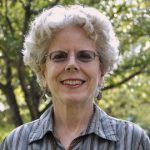 Year: 2014
Year: 2014
Location: UCLA
Speaker: Patricia Mokhtarian, Georgia Tech University
UCLA hosted the 8th annual Martin Wachs Distinguished Lecture where Patricia Mokhtarian, faculty at Georgia Tech, lamented that travel is now viewed primarily as a “derived demand” : travel occurs only so that people can enjoy the goods and experiences attained at their destination but not because the journey in and of itself brings enjoyment. Mokhtarian described how the view of travel among transportation officials in early 21st century has come to feel largely negative. And so, she made clear from the beginning that her aim was to restore balance to how we conceive of travel by placing travel into the category of behaviors that have a dual nature: those that have on the one hand a utilitarian (functional) aspect, yet also bring a hedonic (pleasing) dimension. As she explained to the audience, travel in this positive sense can be viewed as similar to the act of eating: just as eating food can bring with it a pleasure that has little to do with nutritional sustenance, travel can bring a positive feeling unrelated to one’s ultimate destination.
Transportation Lecture with Edward Glaeser
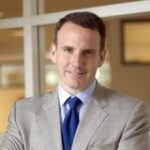 Year: 2013
Year: 2013
Location: Berkeley
Speaker: Edward Glaeser, Harvard Kennedy School
Edward Glaeser is currently the Fred and Eleanor Gimp Professor of Economics at Harvard Kennedy School., He also serves as the director of both the Taubman Center for State and Local Government and the Rappaport Institute for Greater Boston. He studies the economics of cities, and has written scores of urban issues, including the growth of cities, segregation, crime, and housing markets. He has been particularly interested in the role that geographic proximity can play in creating knowledge and innovation. Glaeser is also the author and co-author of over forty publications, including online and print material. At Harvard he teaches urban and social economics and microeconomic theory. His work focuses on the determinants of city growth and the role of cities as centers of idea transmission.
What About Time in Transportation and Health Research?
 Year: 2012
Year: 2012
Location: UCLA
Speaker: Mei-Po Kwan, The Ohio State University
The 6th annual Martin Wachs Distinguished Lecture featured Mei-Po Kwan, now Professor of Geography amd Geographic Information Systems at the University of Illinois-Urbana Champaign. In her lecture, the audience learned how transportation researchers have long recognized the role of time in influencing activity-travel behavior. In previous studies, time has been treated largely as a linear reference system for registering when events happen, or as a dimension for assessing how phenomena change over time and space. This presentation examined a different notion of time and its implications for transportation and health research, revisiting some fundamental concepts like distance, accessibility, and geographic context, while exploring new conceptualizations that take time into account. It suggests that time is at least as important as space for understanding how individuals of different social groups experience access to facilities and exposure to contextual or environmental influences. The lecture offers that a temporally integrated perspective would help shed new light on many issues transportation and health researchers have been examining for decades.
What’s Wrong with U.S. Public Transit Policy?
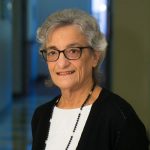 Year: 2011
Year: 2011
Location: Berkeley
Speaker: Genevieve Giuliano, USC
Berkeley hosted the 5th annual Martin Wachs Distinguished Lecture where Genevieve Giulano, faculty at the University of Southern California, examined outcomes of four decades of transit policy. Using two examples, mobility for the disadvantaged and transit impacts on land use, Giulano showed the audience that little progress is being made in achieving transit’s objectives. Yet, as she demonstrated, public transit, continues to receive strong public support, and subsidies continue to grow. Major barriers to achieving public transit’s urban planning objectives she discussed included investment and service decisions that generate public support. Evidently, effective U.S Public Transit Policy will compromise the public want with the desired technical objectives.
Equity, Pricing, and Surface Transportation Politics
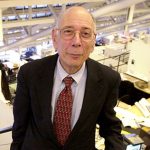
Year: 2010
Location: UCLA
Speaker: Alan Altshuler, Harvard University
The 4th annual Martin Wachs Distinguished Lecture by Alan Altshuler, professor of urban policy and planning in the Kennedy School of Government and the Graduate School of Design at Harvard, examined the new debates about funding for surface transportation, and posed to the audience the question of how managing road congestion will occur in an era when major capacity expansion is rarely feasible. He described how these debates are also routinely framed around conceptions of equity and sought to explain the distinctive nature of equity debates in U.S surface transportation, with particular attention to congestion pricing and High Occupancy Toll Lanes.
Gender and Mobility: A Feminist Geographer’s Perspective
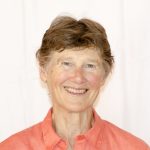 Year: 2008
Year: 2008
Location: Berkeley
Speaker: Susan Hanson, Clark University
In the 3rd annual Martin Wachs Distinguished Lecture, Susan Hanson, professor emerita of geography at Clark Univeristy, tackled the complex issues surrounding gender and mobility. Lending her perspective to this conversation, Hanson emphasized how feminists have long known that gender and mobility are inseparable, influencing each other in profound and often subtle ways. In her talk, she discussed that tackling these complex societal problems will require improved understandings of the relationships between gender and mobility. Hanson illuminated the gaps in scholarship, as we saw how work on how mobility shapes gender has emphasized gender, to the neglect of mobility, whereas research on how gender shapes mobility has dealt with mobility in great detail and paid much less attention to gender.
Keeping the City: A 40-Year Quest for Sustainable Urban Transport
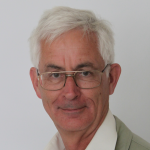 Year: 2007
Year: 2007
Location: UCLA
Speaker: Anthony May, Leeds University
In November 2007, the 2nd annual Wachs Lecture, and the first held at UCLA, was delivered by Anthony May, professor at Leeds University. In his lecture, May explored the history and future of efforts to reduce the environmental footprint of transportation systems and increase their contributions to the sustainability and livability of cities, drawing on his decades of research in the United Kingdom. His lecture was followed by a commentary by Gail Goldberg, then planning director of the City of Los Angeles.
Why the Worst Megaprojects Get Built and How Better Policy and Planning Can Stop It
 Year: 2006
Year: 2006
Location: Berkeley
Speaker: Bent Flyvbjerg, Aalborg University
The inaugural Martin Wachs Distinguished Lecture was held on October 17, 2006 with Bent Flyvbjerg, professor of planning at Aalborg University, Denmark and a former Wachs doctoral student, told a packed auditorium of current and future transportation, urban and regional planners the bad news about megaprojects. The lecture discussed the tendency of these projects to go over budget, with nine out of 10 estimated to incur cost overruns. As the audience learned, demand for particular megaprojects are also significantly overestimated, while their budgets greatly exceed initial estimates, creating a costly, underutilized project. Flyvbjerg left the audience to consider how this overoptimism and overcomplexity should be addressed through policy.
[/fusion_tab][/fusion_tabs][/fusion_builder_column][/fusion_builder_row][/fusion_builder_container]